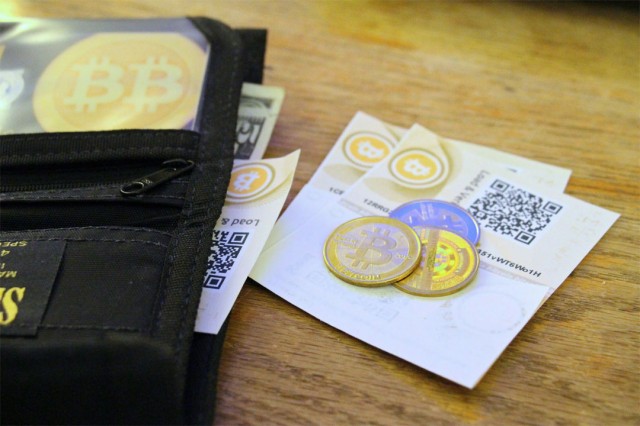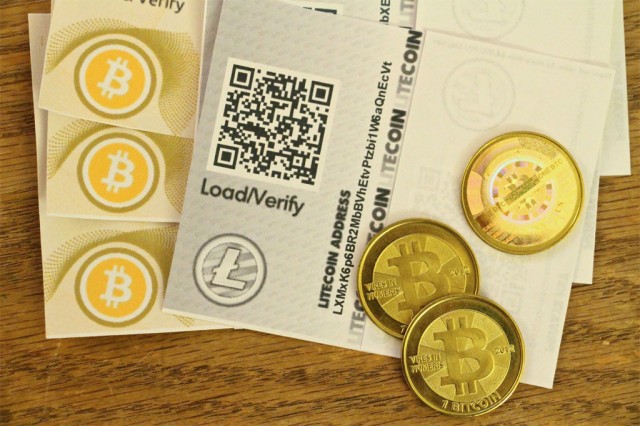
It might have passed you by, but an essential part of the Internet's infrastructure took a heavy knock last week. The Silk Road—you know, the website where you can buy any drug imaginable—was subjected to a series of distributed denial of service (DDoS) attacks.
Calling the Silk Road "essential" might seem an exaggeration, but it isn't if you're one of its many regular users. The same goes if you're a regular user of Bitcoin—its journey to mainstream acceptance began with the Silk Road, as it's perfect for anonymous, untraceable transactions (as long as you're careful not to make your identity obvious, of course).
Right now, Bitcoin is undeniably a mainstream currency, even if it is not necessarily popular in the sense of being used by a significant proportion of society. But it is viewed as a legitimate method of payment, and a legitimate asset, by the people who matter in these issues—CNBC has it as a ticker on its website, for example, and there's a Bitcoin hedge fund in Malta.
That isn't to say Bitcoin doesn't have issues, though. The Bitcoin bubble was a fascinating game of musical chairs played out over several months—everyone knew the music would stop, but nobody wanted to guess when that might be while there was easy money to be made. Also, DDoS attacks have been incredibly effective at manipulating Bitcoin's value. Closing a large exchange like Mt. Gox, even if only for a few hours at a time, could cause enough of a price fluctuation for canny hackers to buy low and sell high at their own whim.
For all the Bitcoin hype, it's not hard to see that there's a big problem in how bitcoins are actually used. That comes from Bitcoin being both a currency and a commodity in its current form. Its rise in value has been the thing to make it famous, but that's also the thing that has undermined its usefulness as a currency. If you're someone who wants to accept bitcoins as part of a business, then having to update your prices every minute isn't necessarily useful—nor is the worry that deflation might discourage coins from circulating, or the worry that the whole thing could pop without warning.For all Bitcoin’s problems, the underlying concept is an attractive one: a cryptographically secure and anonymous currency that doesn't take a cut from transactions.
Businesses have started accepting Bitcoin to their credit. There's a whole neighborhood in Berlin that's seemingly converted en masse, while the range of online services that accept it—from WordPress to OK Cupid—is now long enough to be essentially pointless in listing. This is significant in showing that Bitcoin is now a legitimate currency.
We may be entering a new period in how we pay for things online with Bitcoin as the first example of theory put into practice. Like many new and radical ideas, its implementation has been sketchy and inconsistent. Naysayers decry it as a scam or a Ponzi scheme. Its acolytes proclaim it a crucial weapon in the liberation of the individual from the corporatist banking system and government regulation of commerce.
This argument sees Bitcoin being to currencies and online markets what Napster was to music piracy. The popularity of Bitcoin might well have put the whole system under an immense amount of stress but the underlying concept is an attractive one—a cryptographically secure and anonymous currency that doesn't take a cut from transactions (like, say, Amazon's virtual currency) and remains independent of any single, central authority.
For many people, the risks—from fraud, for instance—are outweighed by the benefits. So let's say you're not convinced by Bitcoin as it is, but you still like Satoshi Nakamoto's idea of "an electronic payment system based on cryptographic proof instead of trust, allowing any two willing parties to transact directly with each other without the need for a trusted third-party." Luckily for you, there are alternatives out there. Here are some of the more interesting ones, all forked from the original Bitcoin code.
Litecoin (LTC)
Site: http://litecoin.org/
Launch date: October 13, 2011
Number of litecoins in circulation: More than 17,000,000
Eventual litecoin total: 84,000,000
Market cap: $61.9 million

The most prominent alternative to Bitcoin, Litecoin works upon the same fundamental principles. However, it's positioned not just as an alternative to Bitcoin but a complementary cryptocurrency—"the silver to Bitcoin's gold."
Apart from the problems with price fluctuation, Bitcoin had some fundamental infrastructure issues that weren't anticipated by many of its early adopters. The blockchain—the entire core of the concept—has come under increasing strain as Bitcoin has become more popular.
In its simplest terms, the blockchain is the record of every single transaction on the Bitcoin network. Every transaction is public, and the blockchain continues to grow as it contains the full record of every exchange since Bitcoin started.
This has some weird consequences—while it's easy to make yourself anonymous, it's also easy to track those anonymous transactions. This is how Sergio Lerner worked out that Satoshi Nakamoto has a fortune of 980,000 bitcoins, worth $113.8 million. If Bitcoin owners aren't careful about how they spend that money, it could reveal their identity.
Roughly every 10 minutes, a new blockchain is generated and disseminated throughout the Bitcoin network by each node, and the version that becomes the accepted, canonical version is the one that is disseminated by the greatest number of nodes. It is, in a way, democratic.
Litecoin was founded in October 2011 in recognition that this kind of problem was probably going to happen if Bitcoin became popular. Merchants require large numbers of small value transactions happening quickly, something that Bitcoin isn't really well-suited for. Larger transactions, happening more slowly (remember, new blockchains generate every 10 minutes) are more suited to it.
That's why Litecoin has a faster transaction time (roughly two and a half minutes) than Bitcoin. With four times as many coins in circulation, it theoretically offers smaller divisions of coins to make smaller transaction values more feasible.
It also uses a hashing algorithm—scrypt—which is supposed to keep Litecoin mining realistic for desktop users, as opposed to the standard SHA256d algorithm used by Bitcoin which becomes more time- and power-intensive as time goes on. Mining both litecoins and bitcoins at the same time isn't just possible, it's encouraged by Litecoin's developers. Whether Litecoin is more or less secure than Bitcoin as a result is a passionate debate within the cryptocurrency community.
While a user has to go to an exchange like Vircurex to buy litecoins, Mt. Gox has announced plans to add support for it in the near future (though when exactly is unclear, thanks to the wave of DDoS attacks). Being on the largest Bitcoin exchange could give Litecoin an extra layer of legitimacy through association.
Currently, support for the currency is limited to the kinds of places that Bitcoin was restricted to in its early days—uselitecoin.com lists casinos and cryptocurrency news sites, with the Pirate Bay being the most prominent supporter.
The current exchange rate, at time of writing, puts a litecoin worth roughly 1/30th that of a bitcoin (or around $3.28 per litecoin), making it the most valuable cryptocurrency after Bitcoin.
reader comments
71